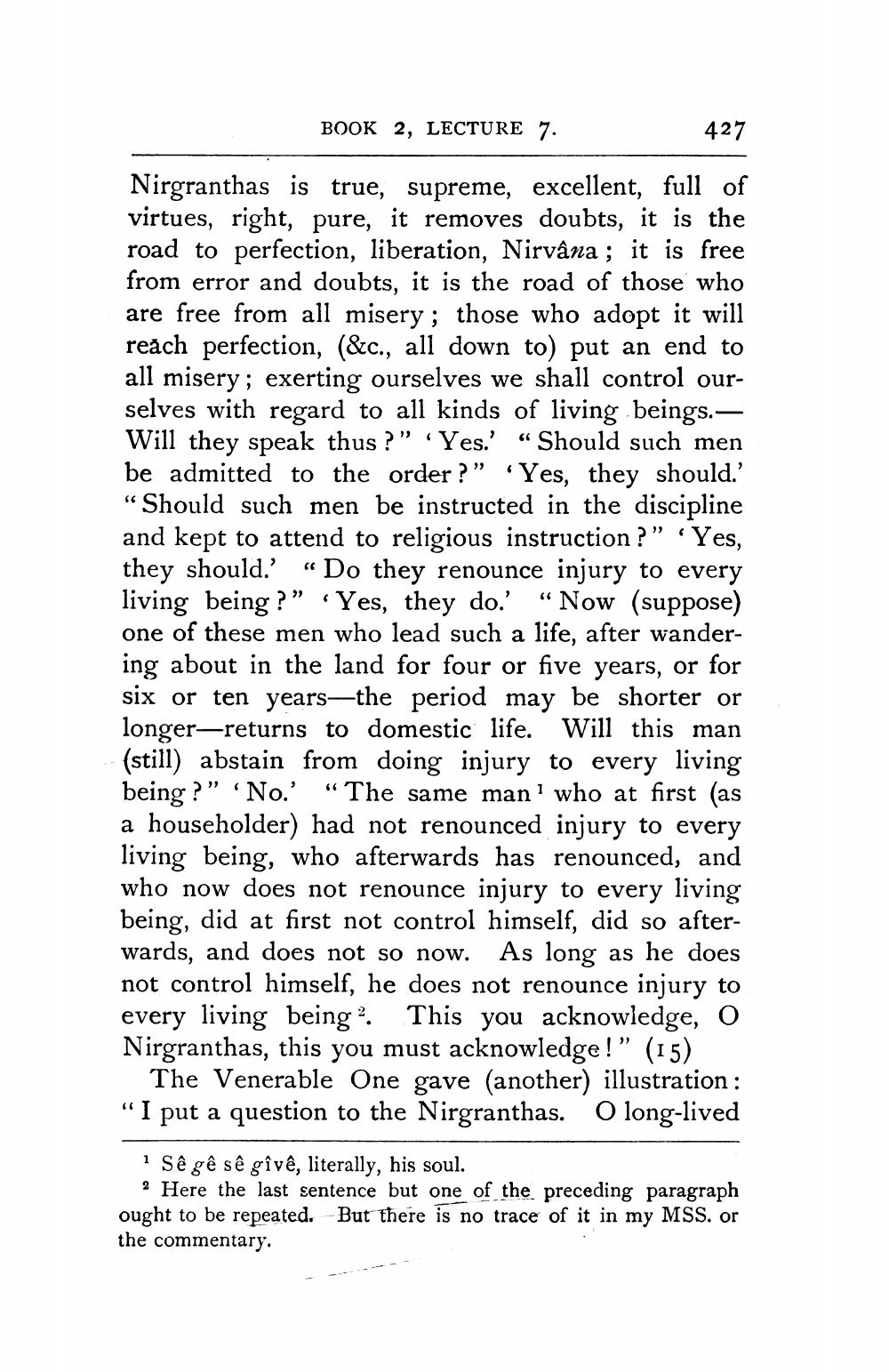________________
427
66
Nirgranthas is true, supreme, excellent, full of virtues, right, pure, it removes doubts, it is the road to perfection, liberation, Nirvâna; it is free from error and doubts, it is the road of those who are free from all misery; those who adopt it will reach perfection, (&c., all down to) put an end to all misery; exerting ourselves we shall control ourselves with regard to all kinds of living beings.— Will they speak thus?" 'Yes.' Should such men be admitted to the order?" "Yes, they should.' "Should such men be instructed in the discipline and kept to attend to religious instruction?" 'Yes, they should.' "Do they renounce injury to every living being?" Yes, they do.' "Now (suppose) one of these men who lead such a life, after wandering about in the land for four or five years, or for six or ten years-the period may be shorter or longer-returns to domestic life. Will this man (still) abstain from doing injury to every living being?" 'No.' The same man who at first (as a householder) had not renounced injury to every living being, who afterwards has renounced, and who now does not renounce injury to every living being, did at first not control himself, did so afterwards, and does not so now. As long as he does not control himself, he does not renounce injury to every living being 2. This you acknowledge, O Nirgranthas, this you must acknowledge!" (15)
66
The Venerable One gave (another) illustration: "I put a question to the Nirgranthas. O long-lived
BOOK 2, LECTURE 7.
1 Sêgê sê gîvê, literally, his soul.
2 Here the last sentence but one of the preceding paragraph ought to be repeated. But there is no trace of it in my MSS. or the commentary.




